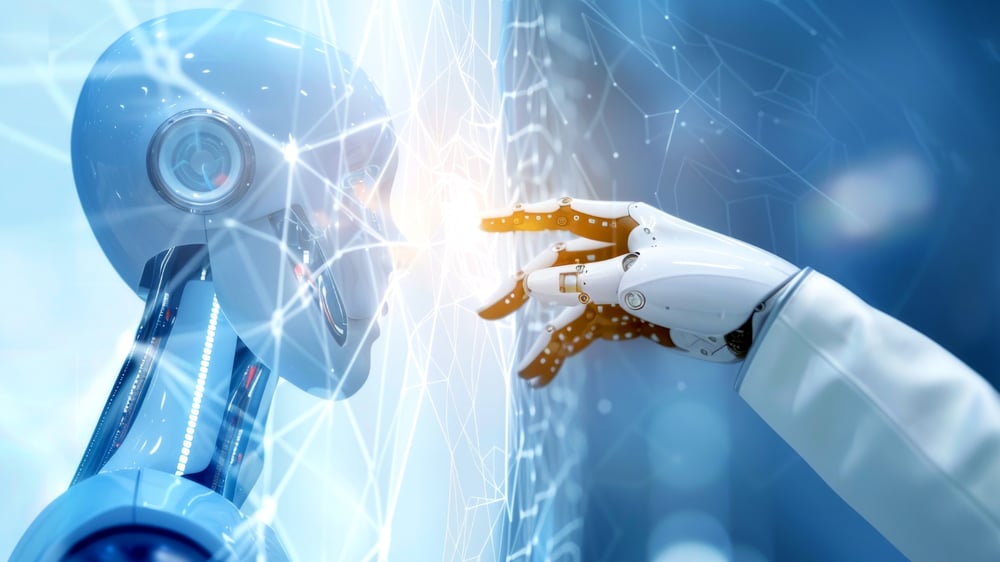How AI Is Changing ETL: What Data Engineers Need to Know
AI Technology Data Engineering Sep 10, 2025 9:00:00 AM Ken Pomella 3 min read

AI is fundamentally transforming ETL by automating manual tasks, enhancing data quality, and making pipelines more resilient. For data engineers, this shift means moving away from repetitive scripting to a more strategic, high-value role focused on building and managing intelligent data systems.
How AI is Redefining the ETL Process
Traditional ETL (Extract, Transform, Load) relies on rigid, rule-based scripts that are brittle and time-consuming to maintain. A small change in a source system can break an entire pipeline. AI and machine learning are changing this by introducing automation and intelligence at every stage.
- Smarter Extraction: AI-powered tools can automatically detect and connect to new data sources, including unstructured data like PDFs, emails, and images. They use machine learning to intelligently parse and structure this information without requiring hardcoded rules, which was a major limitation of traditional ETL.
- Intelligent Transformation: This is where AI makes the biggest impact. Instead of manually writing complex SQL or code for every transformation, AI can:
- Auto-map schemas: AI learns from historical patterns to automatically map fields between source and target systems, even when column names are inconsistent.
- Automate data cleansing: AI and machine learning models can detect anomalies, outliers, and missing values in real-time, then apply corrective actions to ensure data quality.
- Suggest transformations: Based on the data and business context, AI can recommend specific transformations, reducing the time spent on manual guesswork.
- Optimized Loading: AI can dynamically adjust the loading strategy to optimize for performance and cost. For example, it can decide whether to load data into a data warehouse, a data lake, or a real-time analytics engine based on how the data will be used.
Key Benefits of AI-Powered ETL
The shift to AI-driven ETL goes far beyond simple automation; it creates significant business value.
- Faster Time-to-Insight: By automating repetitive and manual tasks, AI drastically accelerates the entire data pipeline. This means data is available for analysis faster, enabling quicker business decisions.
- Enhanced Data Quality: Automated data quality checks and anomaly detection ensure that the data being used for business intelligence and AI models is accurate and reliable. This builds trust in your data assets.
- Increased Resilience: AI-powered pipelines are more robust. They can proactively detect schema drift (changes in data structure) and adapt to them without human intervention, preventing pipeline failures and reducing maintenance overhead.
- Democratization of Data: Low-code and no-code ETL tools, often powered by AI, allow business users and analysts to build their own data pipelines. This reduces the burden on data engineering teams and enables more people to work with data.
What Data Engineers Need to Know in 2025
The role of the data engineer isn't disappearing; it's evolving. Success in 2025 requires a new set of skills.
- Focus on Architecture and Governance: Engineers will spend less time on manual ETL scripting and more time designing the overall data architecture. This includes selecting and integrating AI-powered tools, ensuring data governance, and implementing robust security frameworks.
- Proficiency with Modern Tooling: Get hands-on with AI-powered data integration platforms like Informatica, Matillion, or Microsoft Purview. Understand how these services use machine learning to simplify and automate data workflows.
- A Deeper Understanding of Data: With automation handling the low-level tasks, engineers must develop a better understanding of the business context of their data. This includes knowing which data is most valuable, how it's used by stakeholders, and how to model it effectively for machine learning and analytics.
The future of ETL is intelligent and automated. By adapting to this change and focusing on high-level skills, data engineers can become architects of next-generation data platforms.

Ken Pomella
Ken Pomella is a seasoned technologist and distinguished thought leader in artificial intelligence (AI). With a rich background in software development, Ken has made significant contributions to various sectors by designing and implementing innovative solutions that address complex challenges. His journey from a hands-on developer to an entrepreneur and AI enthusiast encapsulates a deep-seated passion for technology and its potential to drive change in business.
Ready to start your data and AI mastery journey?
Explore our courses and take the first step towards becoming a data expert.
